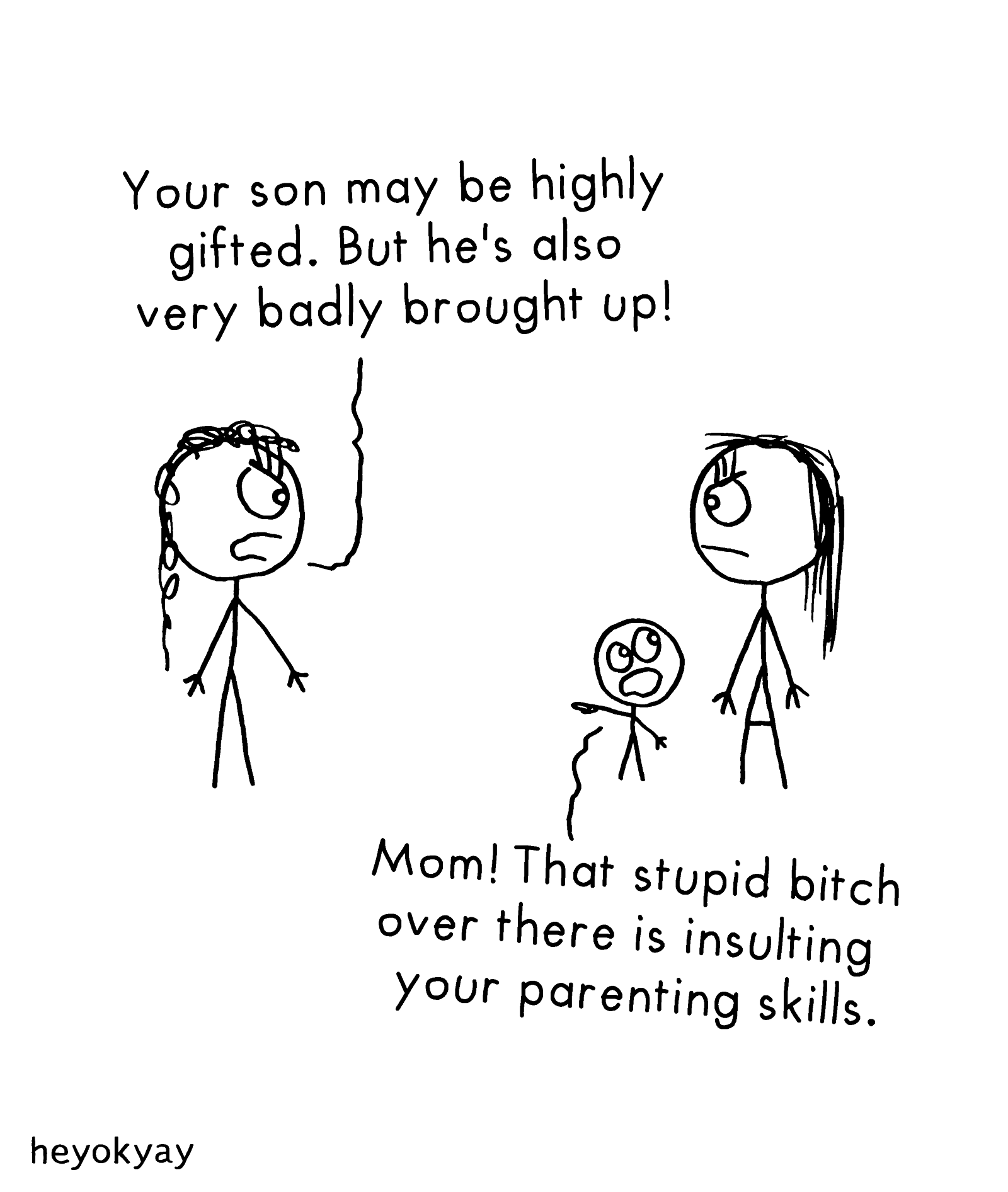Listening To Our Children - When They Share Difficult Truths
There are moments in life when a young person might come to us with something heavy on their heart, something they have heard or perhaps even experienced. It takes a great deal of courage for a child to share such information, and how we respond in those first few moments can make all the difference. It's almost as if a whole new world opens up, full of feelings and questions that need very careful handling. So, too, our reactions shape what happens next for them, and for anyone else involved.
When a child shares a story that feels unsettling, it often comes with a mix of emotions, not just for them, but for us listening. You know, they might be trying to make sense of something that doesn't feel right, something they've seen or heard from a friend. They are, in a way, trying to find their footing in a situation that feels too big for them. It is that sense of confusion, coupled with a deep desire for things to be okay, that often drives them to speak up.
Sometimes, what they share hints at situations that are truly difficult to imagine, scenarios where a young person might be in a place of deep hurt or fear. The words they choose, or the actions they show us, can be a way of trying to explain something that is just beyond their grasp, something they might not even have the words for yet. We need to be ready to hear these unspoken messages, to understand the deeper plea that might be present in their communication, you know?
What Happens When a Child Speaks Up?
Imagine a child coming home, perhaps a little quieter than usual, and then, after some time, they share something that a friend told them. This friend, it seems, mentioned that their own father made them do things they really did not want to do. The child, trying to explain the gravity of what they heard, might even act out what was described, almost as if trying to show you the full picture because words simply are not enough. It's a bit like a puzzle they are trying to piece together for you, so you can see the whole thing.
How Can We Support a Son Who Shares a Secret?
When our son, or any child, tells us something like this, it is a truly important moment. Our immediate thought, perhaps, goes to helping the friend, suggesting they tell someone who can help, like reporting it. But the friend, as our son might relay, feels a deep conflict. They do not want their father to be taken away, even if they are experiencing things that are wrong. They might even ask our son not to tell anyone, creating a heavy burden for a young person to carry. This is, you know, a very common response from children in such circumstances; loyalty and fear can be powerful feelings.
What comes next for us, as the adults who hear this, is a very real question. How do we respond in a way that protects the child who spoke up, and also potentially helps the child who is in trouble? It is not a simple path, and there are many feelings to consider. We need to approach this with a great deal of thought and sensitivity, understanding that the child who shared the story is also carrying a lot, almost like a secret weight on their shoulders.
- Animal House Film Cast
- Knots Landing Cast
- Rocky Cast
- Carroll O Connor Young
- Nicole Kidman House Nashville
What Does it Mean When a Dad's Actions Cause Fear?
The very idea that a parent, a dad, could be the source of such fear and unwanted actions for their child is incredibly disturbing. It forces us to think about the trust that children place in the adults around them, especially those who are meant to keep them safe. In some respects, it breaks a fundamental expectation of what a family should be. This kind of situation, too, can create deep confusion for a child, making them question what is normal or safe. It's a really difficult thing for anyone, let alone a young person, to process.
When a child expresses that a parent's actions are causing them distress or fear, it is a signal that something is seriously amiss. It's not just about the specific actions, but the feeling of powerlessness and betrayal that can come with them. This is why listening without judgment, and providing a safe space for a child to speak, becomes absolutely vital. We need to be a stable presence for them, a quiet harbor in what might feel like a very turbulent time.
Understanding Child Exploitation - A Broader View
The concepts shared by our son's friend touch upon a very serious issue, one that many organizations work tirelessly to address: child sexual exploitation. This is, in essence, a kind of abuse where a young person is persuaded, tricked, or forced into sexual activity. It happens, typically, when an adult exploits a child's needs or wants. This could be for things like gifts, or perhaps money, or even a sense of belonging or affection that the child might be missing. It is a very manipulative process, basically, where a child's vulnerabilities are used against them.
Recognizing Signs - Beyond What a Son Might Say
Sometimes, a child may not use direct words to tell us what is happening. Their behavior might change, or they might seem withdrawn, or perhaps they show signs of distress that are hard to pinpoint. These are, in a way, their own ways of communicating when direct speech feels too risky or too hard. It is important for us to be observant, to notice these shifts, and to create an environment where a child feels safe enough to share, even if it is just a little bit at a time. This involves, you know, being present and attentive to their overall well-being.
Consider the story of Kayti, who was just a young girl when her own father, in a US town, sold her for sex. After enduring years of such terrible treatment, she eventually found the strength to tell her story and escape. Her experience, like many others, highlights the unimaginable betrayal and the deep, lasting harm that can come from such situations. It's a stark reminder that these things are not just abstract ideas, but very real and painful realities for young people. This is, quite frankly, a truly heartbreaking truth.
There have been other cases, too, where adults have been found guilty of abusing their own children. One instance involved a couple convicted of sexually abusing their young son, who bravely spoke about frequent sexual encounters with his mother while his father gave instructions. These accounts, as a matter of fact, really underscore the complex and deeply disturbing nature of abuse within families. They remind us that the people who are meant to protect children can sometimes be the very ones who cause them harm, which is a truly difficult concept to grasp.
How Can We Help a Child Who Feels Trapped?
When a child feels trapped, perhaps by loyalty to a parent or by fear of consequences, it is a very challenging position for them. They might believe that if they speak up, things will only get worse, or that they will lose someone important to them. This is why it is so important for adults to offer a path forward that feels safe and supportive, ensuring the child understands that they are not to blame, and that there are people who can help without causing further harm. We need to convey that their safety and well-being are the most important things, above all else, you know?
Helping a child who feels caught in such a situation often means connecting with professionals who understand these delicate dynamics. It is not something one person should try to handle alone. There are support systems and resources available, designed to provide the right kind of care and protection. This involves, perhaps, reaching out to child protection services or organizations specializing in child well-being. It is about building a network of support around the child, making sure they feel seen and heard.
The Long Road to Healing
The effects of such experiences can linger for a very long time, shaping a child's sense of self and their relationships. Healing is a process that takes time, patience, and often, professional guidance. It is not a quick fix, but a gradual journey of recovery and rebuilding. For those who have experienced such deep wounds, the path to feeling safe and whole again can be lengthy, but it is certainly possible with the right kind of help. This is, in a way, a testament to the human spirit's ability to endure and find strength.
Support Systems for Every Child and Dad
Through dedicated efforts, like intensive clinical studies involving many individuals who have experienced family abuse, and countless conversations with mental health professionals, child protection workers, and law enforcement, we have gained a much better understanding of these issues. This ongoing work helps us develop better ways to support those who have been hurt and to prevent further harm. It is, basically, a collective effort to create safer environments for all children. This includes, very much, providing resources for parents who might also be struggling or need guidance.
Creating a safe space means ensuring that children know they have someone they can talk to, someone who will listen without judgment and believe them. It also means educating ourselves, as adults, about the signs of distress and the resources available. For every child, and for every parent, there are ways to find help and support, even when situations seem incredibly difficult. It is about fostering a community where the well-being of young people is always the top priority, you know, making sure they feel cared for and protected.

John Son Ramirez

Exhibit Show by House of Son Amar without Transfer | musement

Son